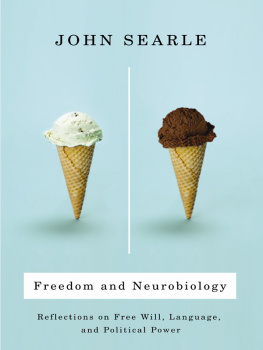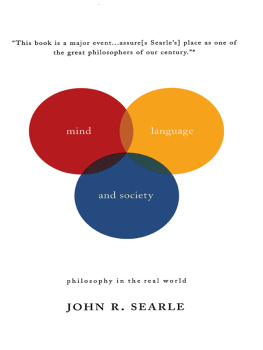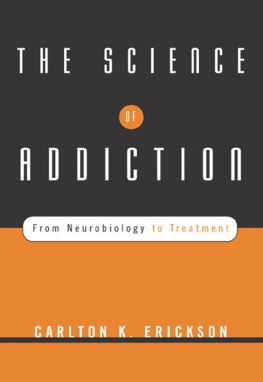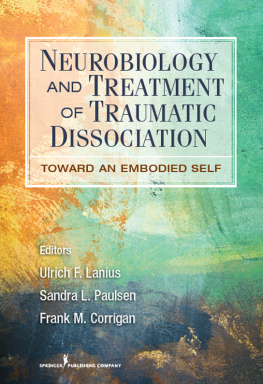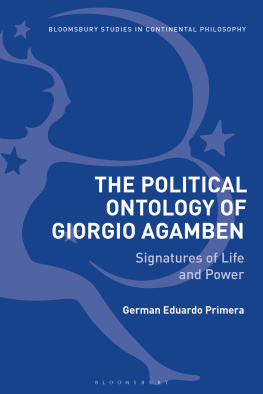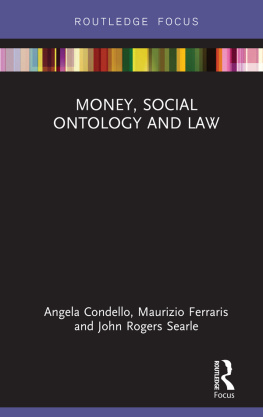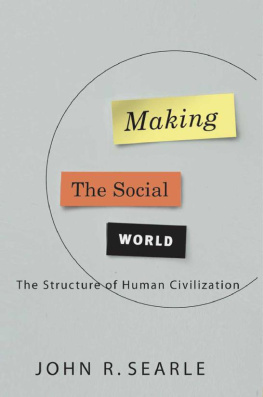Searle - Freedom and neurobiology: reflections on free will, language, and political power
Here you can read online Searle - Freedom and neurobiology: reflections on free will, language, and political power full text of the book (entire story) in english for free. Download pdf and epub, get meaning, cover and reviews about this ebook. City: New York, year: 2007;2011, publisher: Columbia University Press, genre: Religion. Description of the work, (preface) as well as reviews are available. Best literature library LitArk.com created for fans of good reading and offers a wide selection of genres:
Romance novel
Science fiction
Adventure
Detective
Science
History
Home and family
Prose
Art
Politics
Computer
Non-fiction
Religion
Business
Children
Humor
Choose a favorite category and find really read worthwhile books. Enjoy immersion in the world of imagination, feel the emotions of the characters or learn something new for yourself, make an fascinating discovery.
Freedom and neurobiology: reflections on free will, language, and political power: summary, description and annotation
We offer to read an annotation, description, summary or preface (depends on what the author of the book "Freedom and neurobiology: reflections on free will, language, and political power" wrote himself). If you haven't found the necessary information about the book — write in the comments, we will try to find it.
Searle: author's other books
Who wrote Freedom and neurobiology: reflections on free will, language, and political power? Find out the surname, the name of the author of the book and a list of all author's works by series.
Freedom and neurobiology: reflections on free will, language, and political power — read online for free the complete book (whole text) full work
Below is the text of the book, divided by pages. System saving the place of the last page read, allows you to conveniently read the book "Freedom and neurobiology: reflections on free will, language, and political power" online for free, without having to search again every time where you left off. Put a bookmark, and you can go to the page where you finished reading at any time.
Font size:
Interval:
Bookmark:
FREEDOM AND NEUROBIOLOGY
Columbia Themes in Philosophy
COLUMBIA THEMES IN PHILOSOPHY
Series Editor: Akeel Bilgrami, Johnsonian Professor of Philosophy, Columbia University
Columbia Themes in Philosophy is a new series with a broad and accommodating thematic reach as well as an ecumenical approach to the outdated disjunction between analytical and European philosophy. It is committed to an examination of key themes in new and startling ways and to the exploration of new topics in philosophy.
Edward Said, Humanism and Democratic Criticism
Michael Dummett, Truth and the Past
Daniel Herwitz and Michael Kelly, eds., Action, Art, History: Engagements with Arthur Danto
NEUROBIOLOGY

Columbia University Press New York
Columbia University Press
Publishers Since 1893
New York Chichester, West Sussex
cup.columbia.edu
Originally published as Libert et neurobiologie.
Copyright 2004 Editions Grasset & Fasquelle
English language version copyright 2007 Columbia University Press
All rights reserved
E-ISBN 978-0-231-51055-4
Library of Congress Cataloging-in-Publication Data
Searle, John R.
[Libert et neurobiologie. English]
Freedom and neurobiology : reflections on free will,
language, and political power / John R. Searle.
p. cm. (Columbia themes in philosophy)
Lectures presented in French in 2001 at the Sorbonne.
Includes index.
ISBN 0231137524 (cloth : alk. paper)
ISBN 0231510551 (e-book)
1. Free will and determinismPhysiological aspects.
2. Neuropsychology. 3. Power (Social sciences)
4. Sociolinguistics. I. Title. II. Series.
B1649.S264A5 2007
123.5dc22 2006015274
A Columbia University Press E-book.
CUP would be pleased to hear about your reading experience with this e-book at .
For Dagmar
This book has had an unusual publication history, and in this introduction I am going to explain its history and attempt to locate its two chapters within the larger research project of which they are a part.
In late Spring of 2001, I gave a series of lectures at the Sorbonne, one a large public lecture in French on the general topic of language and political power, and some presentations in English to smaller groups, ranging from lectures to seminar discussions, under various auspices and on topics ranging from the freedom of the will to the semiotics of wine tasting. I was asked if I would allow two of these presentations, the lecture I had given in French on political power and one of the lectures in English on the problem of free will, to be published in France. I agreed, on the natural supposition that the two lectures would appear in a journal, or some such venue. To my surprise, my editor, Patrick Savidan, published the two lectures as a rather elegant, though small, book in French called Libert et neurobiologie. I knew nothing of the publication plans until a boxful of books arrived at my home in Berkeley. It is the first time in my life that I published a book I did not know that I had written. Savidan did an excellent job translating the English lecture into French, and I was immensely helped in the preparation of the French text of the other lecture by Anne Hnault and especially by Natalie van Bockstaele.
Just as I was surprised by the publication of the French book I was equally surprised by swift publications of translations of the book from the French into German and Spanish, and, subsequently, Italian and Chinese. By coincidence, the publication in Germany came out while a great public debate was going on there about the status of free will, and the possibility of genuine free will, given contemporary neurobiology. In Germany, the book received several reviews, some quite negative, in daily newspapers of the sort that do not normally review philosophical works.
After all of this, I was approached by Columbia University Press with the proposal to produce an English translation. I had the original English texts on which the viva voce lectures in Paris were based, so it was not necessary to translate the French text. Furthermore, in the intervening years, I had revised Language and Power, and this revised version, called Social Ontology and Political Power, is presented here, because it comes closer to my current views than does the original 2001 text.
The two lectures published here, one about the problem of free will and neurobiology and the other about language, social ontology and political power, do not appear to have any connection with each other. And at one level, the level of authorial intent, they really do not have any connection. It would never have occurred to me while I was preparing them that they would one day be published together. However, they are both parts of a much larger philosophical enterprise and it is worth explaining that enterprise, as it will deepen the readers understanding of what I am trying to do in these lectures. Because I discuss some important philosophical issues in a rather brief and compressed fashion in what follows, I will provide references to some of the works in which I have discussed these same issues at greater length.
There is exactly one overriding question in contemporary philosophy and each of these lectures is an attempt to answer a part of that question. As a preliminary succinct formulation we could put it in this form: How do we fit in? In the longer version, it goes as follows: We now have a reasonably well-established conception of the basic structure of the universe. We have plausible theories about the origin of the universe in the Big Bang, and we understand quite a number of things about the structure of the universe in atomic physics and chemistry. We have even come to understand the nature of the chemical bond. We know a fair amount about our own development on this little Earth during the past five billion years of evolution. We understand that the universe consists entirely of particles (or whatever entities the ultimately true physics arrives at), and these exist in fields of force and are typically organized into systems. On our Earth, carbon-based systems made of molecules that also contain a lot of hydrogen, nitrogen and oxygen have provided the substrate of human, animal and plant evolution. These and other such facts about the basic structure of the universe, I will call, for short, the basic facts. The most important sets of basic facts, for our present purposes, are given in the atomic theory of matter and the evolutionary theory of biology.
There is, however, an interesting tension. It is not at all easy to reconcile the basic facts with a certain conception we have of ourselves. Our self-conception derives in part from our cultural inheritance, but mostly it derives from our own experience. We have a conception of ourselves as conscious, intentionalistic, rational, social, institutional, political, speech-act performing, ethical and free will possessing agents. Now, the question is, How can we square this self-conception of ourselves as mindful, meaning-creating, free, rational, etc., agents with a universe that consists entirely of mindless, meaningless, unfree, nonrational, brute physical particles? In the end, perhaps we will have to give up on certain features of our self conception, such as free will. I see this family of questions as setting the agenda not only for my own work, but for the subject of philosophy for the foreseeable future. There are several specific questions, some of which I have dealt with elsewhere, that are part of the larger single question.
1) Consciousness.
Font size:
Interval:
Bookmark:
Similar books «Freedom and neurobiology: reflections on free will, language, and political power»
Look at similar books to Freedom and neurobiology: reflections on free will, language, and political power. We have selected literature similar in name and meaning in the hope of providing readers with more options to find new, interesting, not yet read works.
Discussion, reviews of the book Freedom and neurobiology: reflections on free will, language, and political power and just readers' own opinions. Leave your comments, write what you think about the work, its meaning or the main characters. Specify what exactly you liked and what you didn't like, and why you think so.

